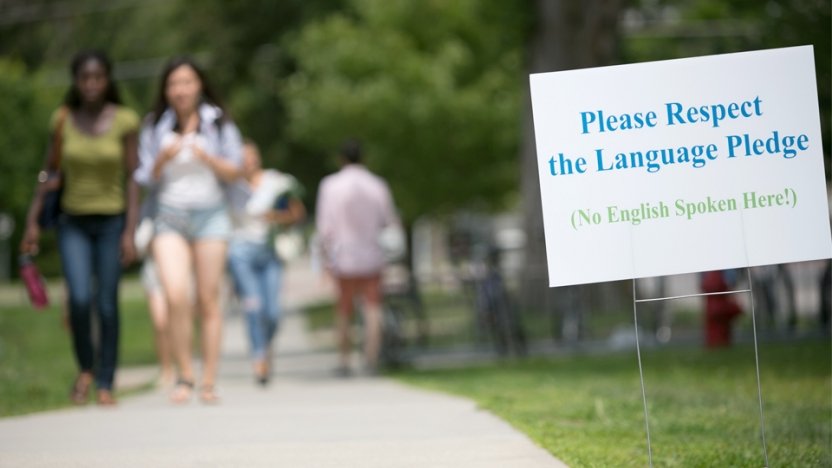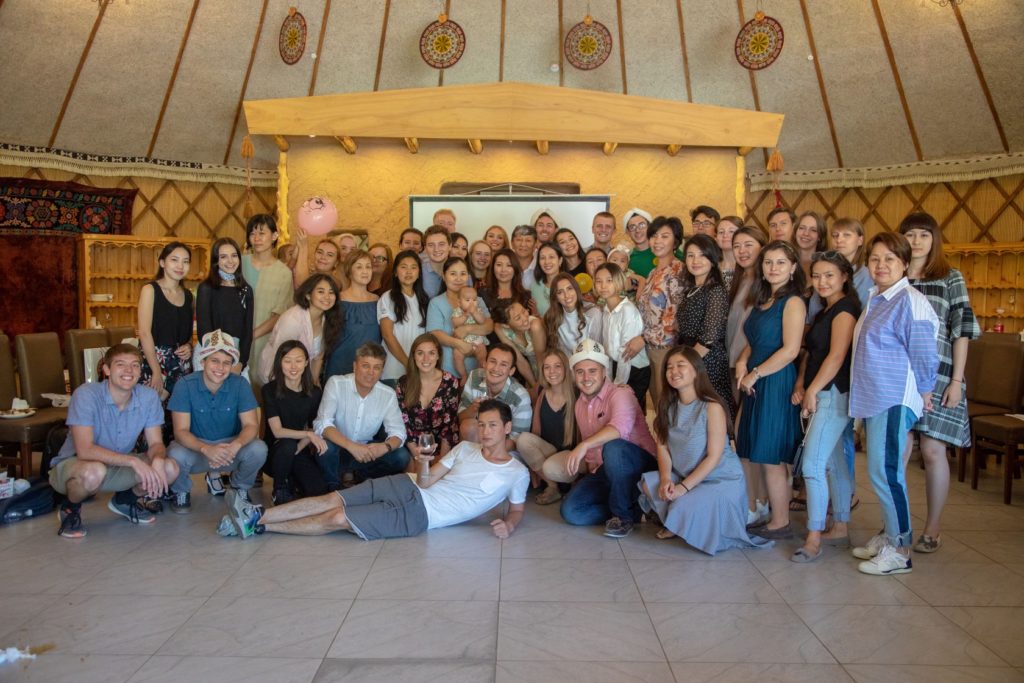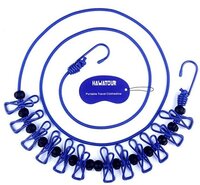

Language Pledges: How to Become Proficient in Any Language!
Have you ever heard of a language pledge?
Maybe you’ve been exploring academic programs and encountered this term, but you’re not entirely sure what it actually entails. The purpose of this article is to help illuminate what a language pledge actually is and to clear up any questions you might have so that you can make an informed decision about whether or not you want to pursue one yourself.
For the purposes of this blog post, I will primarily be describing a language pledge as part of an organized program, such as a study abroad program or intensive language course. If you are teaching yourself a foreign language and do not have access to either of these programs, please see #4 below. There you can find ways to implement a language pledge that achieves parallel results from the comfort of your own home!
Here are the questions we will explore below:
- What is a language pledge?
- How is a language pledge enforced?
- Are language pledges worth it?
- How can I do a language pledge?
At the end of the article, I detail my experience with language pledges if you’re interested in hearing about a first-hand experience on the subject.
Ready? Let’s get right into it!
What is a Language Pledge?

1. What is a Language pledge?
A language pledge is an agreement between you, your fellow students, and the study program to only speak your target language for the entirety of the program. If this seems difficult, that’s because it is! It is meant to push you outside of your comfort zone and become more comfortable using the target language. Depending on your program, the parameters of the language pledge might differ.









2. How is it enforced?
Language pledges usually apply to interactions on school/university grounds regardless of if it’s in class or not and any excursions your program organizes. So this extends to pretty much anywhere your Resident Advisor, school administrators, and professors are within earshot.
Depending on the intensity of the program, a language pledge may or may not be strictly enforced. For example, my first language pledge program did not strictly enforce the language pledge and I did not make significant language gains with my speaking.
Now, this is not to say that you need a language pledge in order to advance your speaking skills, and that without a properly enforced pledge it is impossible to hold yourself accountable and improve. I definitely could have taken more of an initiative to uphold the pledge and only speak Russian with my peers, and I regret not being more strict with myself in that regard. That being said, it is not as though we all said “screw it, why bother when we could just speak English with each other.” As beginner/intermediate Russian students trying to get a grasp on the language, we all felt very vulnerable and nervous when speaking.
It was so much easier to default to English when you weren’t getting your point across in Russian, especially knowing that there wouldn’t be much of a consequence. It is absolutely normal to feel vulnerable and nervous when speaking your target language. However, a large part of being conversational in a foreign language is knowing how to describe terms and concepts that you don’t know the translations for. And that is what a language pledge helps you prepare for. Without the strictly enforced rule, beginner/intermediate Russian-Melissa chose the easier, more comfortable route 7 times out of 10.


However, the language pledge I took with the Critical Language Scholarship (CLS) program had much higher stakes. CLS required us to sign contracts before the program began that stipulated that if we break the language pledge, we risk being kicked out of the program and sent home. The language pledge was to be strictly enforced, and I knew the easier, more comfortable route I so often took before was no longer an option. The strictly enforced language pledge and its consequence of being sent home sounds harsh, but I came to realize that it is ultimately in place to help you succeed and advance your speaking skills.
The major exception to the language pledge is, of course, the ability to speak another language when calling friends/family back home.







3. Is it worth it?
When deciding if you’d like to uphold a language pledge it is important to acknowledge what you’re getting into. A language pledge is difficult, frustrating at times, and incredibly vulnerable. There are times where you might think “I’ve been studying this language for X amount of years, and I can’t express this simple idea? I’m never going to be fluent!” Just remember that what you’re doing is incredibly difficult, but if you keep with it, you will see improvement.
Language progress can only be achieved by stepping outside of your comfort zone. If you are comfortable, you aren’t being challenged. And if you aren’t being challenged, you aren’t learning.
As I touched upon earlier, the most helpful part of the language pledge is actually when you don’t know how to express something. If you aren’t able to express something you’d like to, instead of saying the rest of the sentence in English, you are forced to evaluate: “Do I have the skills to express this, or is there a way I can change the thought to better accommodate my language skills?”
Being proficient in a foreign language doesn’t necessarily mean you have every word in the dictionary memorized. Being proficient means you can explain and describe something if you are engaging in conversation and you encounter a word or idea that you don’t know the translation for. That is a highly critical skill that can’t be achieved if you switch to English every time you hit a roadblock. The language pledge helps encourage and push you to develop these skills.









4. How can I take a language pledge?
There are several ways you can take a language pledge – whether that is through an official program that enforces it as a rule or by yourself through a disciplined schedule and self-made program.
1. Take a language pledge through an academic program
As discussed above, the most common way to take a language pledge is through an academic program or course that enforces it. If you aren’t able to enroll in such a program or you’d like to continue the language pledge after you’ve returned home, you can also do a language pledge with a group of friends with the same goal or by yourself.
2. Take a language pledge with a group of friends with the same goal
If you aren’t able to enroll in a course, but you know other people who would like to practice their speaking more, you can take a language pledge with them and hold each other accountable. A simple way to do this is to hold a regular speaking club where you agree to only speak in your target language. You can get together and have speaking clubs with specific topics (allows you to prepare vocabulary ahead of time), movie nights, or excursions within your city. Depending on how intense you and your friends want to make it, you can also increase the frequency of meetings, add stricter standards outside of when you meet, etc. The important part is to not allow each other to use English as a crutch to explain something you want to express.
3. Take a language pledge by yourself
This is definitely the most ambitious of all the ways to take a language pledge because you must hold yourself accountable to stick to the language pledge.
Want some tips for helping you successfully stick to your language pledge if you’re doing it by yourself? Check out my article 9 Tips To Self-Study A Foreign Language In 2022









5. My experience with Language Pledges
As a part of the CLS program, there is a mandatory language pledge that students must uphold over the course of the program. I was certainly nervous about starting the language pledge because I was not as confident about my Russian skills, however the CLS program fostered an environment where no one wanted to break the language pledge because it would ultimately be doing a disservice to ourselves and to the rest of the cohort.
Having that mandatory pledge put everyone on the same level of vulnerability and thus allowed us to reach outside of our comfort zones and gain significantly more language practice than if we were allowed to speak English. I also made it a point to engage in conversations more while I was abroad because at the beginning of the program, I found myself spending hours on my computer attempting to find a perfect and direct translation of an unfamiliar word or phrase.
I then realized that I did not fly halfway around the world to use the same language-learning methods that I did in America and that the point of the program was to engage more frequently with native speakers. As a result, I began to notice that the more I focused on engaging in conversation and listening for contextual clues for phrases I didn’t know, the more naturally these words and phrases began to appear in my own speech. I was able to build a better relationship with the language and those around me.







Короче говоря . . .
So, there you have it, my guide on language pledges! In my experience, taking a language pledge is an extremely valuable, albeit challenging, experience that offers you the ability to grow your language skills exponentially.
Have you taken a language pledge before? What tips or tricks would you add to my guide? Let me know in the comments below!
All the best,
Melissa
If you’re learning Russian and you’re looking for some free Russian language learning resources, check out my Learn Russian page! There you’ll find guides on the basics, grammar, practical vocabulary, practical conversation, and verbs with prefixes!
Leave a Reply
Learn to speak russian
Travel with ease & dive into the culture, history & lifestyle of post-Soviet countries
free russian learning materials

Melissa

Get the Goods
Head over to the Language & Travel Shop to check out my favorite goodies I use for learning Russian and traveling! I've compiled all my favorite products I use when #onthebloc so that you can benefit from them when you travel abroad. Help yourself prepare and support this blog at the same time :) Счастливого пути!




carry-on goods
gifts for travelers
photography
apparel & accessories
textbooks & readers
luggage & bags

categories
#oTB essentials

Russian-Speaking Travel Destinations
use your new russian skills in real life!

Belarus
EASTERN EUROPE
central Asia
central Asia





Eurasia
Russia
Kyrgyzstan
armenia
Moldova
Kazakhstan
eastern europe
read »
read »
read »
read »
read »
read »
The caucasus
travel guides
Get your FREE #OnTheBloc Starter Kit!
Sign up for the NGB Monthly Newsletter & you'll get a FREE downloadable PDF with Russian language and travel resources for your post-Soviet journey!
оставаться на связи















Way to go on taking a language pledge, Melissa 🙂 That’s awesome! I’ve tried really short-term language pledges, like “on Saturday mornings I will speak only Russian” but never anything like what you did.
And I totally agree with what you said: finding other ways to describe things and feeling okay with the imperfectness of it all is KEY. 🙂
Thanks so much, Katherine! I’m glad you found it useful 🙂 BTW – I love your free resources page!